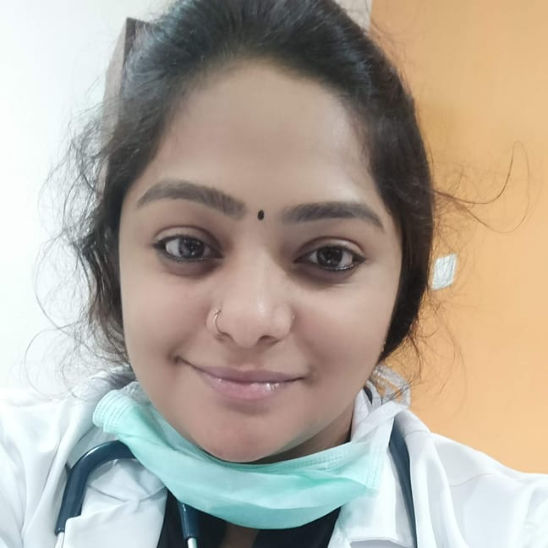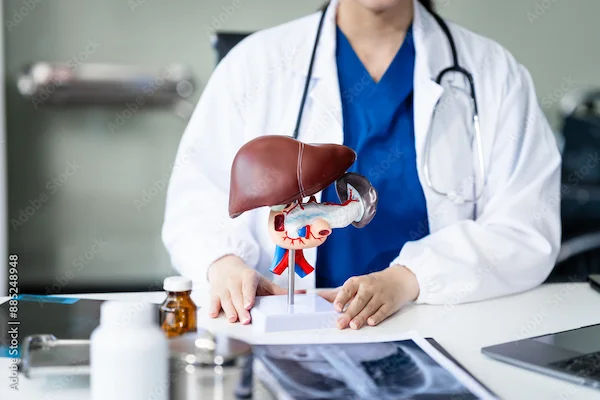Guide to Do Blood Cancer Treatments Affect Fertility
know about blood cancer, what it is, treatment influence on fertility, targeted therapies, proactive preservation and more.

Written by Dr. Dhankecha Mayank Dineshbhai
Reviewed by Dr. Vasanthasree Nair MBBS
Last updated on 13th Jan, 2026

Introduction
Receiving a blood cancer diagnosis is a life-altering event, and your immediate focus is rightly on treatment and recovery. Amidst the whirlwind of appointments and decisions, the topic of future fertility can feel overwhelming, yet it is a profoundly important concern for many patients of childbearing age. Treatments like chemotherapy and radiation, while lifesaving, can unfortunately impact your ability to have biological children. This guide is designed to empower you with clear, compassionate information on how different blood cancer treatments affect fertility. We will explore the risks, detail the proactive preservation options available to you before treatment begins, and provide hope for building the family you envision after your recovery. Taking steps to understand these effects allows you to be an active participant in your care plan, addressing both your survival and your quality of life thereafter.
Understanding the Impact: How Blood Cancer Treatments Affect Fertility
The risk to your fertility depends on several factors, including the type and dose of treatment, your age at the time of treatment, and your pre-treatment fertility status. It's not a simple "yes" or "no" but a spectrum of risk that your medical team can help you understand.
Consult a Top General Practitioner for Personalised Advice
Chemotherapy and Fertility Damage
Chemotherapy works by killing rapidly dividing cells, a hallmark of cancer cells. However, it cannot distinguish between cancer cells and other healthy, fast-dividing cells in the body, including those in the reproductive system. The level of risk is heavily influenced by the specific drugs used and their cumulative dosage.
- High-Risk Chemo Drugs: Alkylating agents (e.g., cyclophosphamide, ifosfamide, procarbazine) and certain platinum-
based drugs are particularly toxic to the ovaries and testes. These are commonly used in regimens for lymphomas like
Hodgkin lymphoma and certain leukaemias. - Impact on Women: Chemotherapy can damage or destroy the finite number of eggs in the ovaries, leading to premature ovarian insufficiency (early menopause). The risk is higher for women over 35, as their ovarian reserve is naturally lower.
- Impact on Men: Chemo can reduce sperm production (oligospermia) or halt it completely (azoospermia). This can be
temporary or permanent.
Radiation Therapy's Targeted Effects
Radiation’s impact is directly related to the area being treated. When radiation is directed at or near the pelvis, brain, or
total body, it poses a significant risk.
- Pelvic Radiation: Direct exposure to the ovaries or testes can cause immediate and irreversible damage. In women, it can destroy eggs and damage the uterus, potentially affecting the ability to carry a pregnancy. In men, it can severely impair sperm production.
- Total Body Irradiation (TBI): Used as part of conditioning for a stem cell transplant, TBI always carries a very high risk
of causing permanent infertility in both men and women. - Brain Radiation: Radiation to the pituitary gland in the brain can disrupt the signals (hormones) that stimulate the
ovaries or testes to function.
Stem Cell Transplant and High-Dose Treatments
A stem cell transplant (or bone marrow transplant) often involves very high doses of chemotherapy and/or total body
irradiation to eliminate the patient's bone marrow before receiving new stem cells. These high-intensity conditioning
regimens are designed to be ablative, meaning they destroy the existing bone marrow—and unfortunately, they are
almost always sterilising, causing permanent infertility. This is one of the most significant fertility considerations for
blood cancer patients facing a transplant.
The Role of Targeted Therapies and Immunotherapy
Newer treatments like targeted therapy and immunotherapy are less well-studied regarding long-term fertility effects, as
they work differently from traditional chemo.
- Targeted Therapy: The effects are variable. Some drugs may have minimal impact, while others, particularly those targeting specific pathways involved in cell growth, might affect reproductive cell development. More research is needed.
- Immunotherapy: Drugs like checkpoint inhibitors (e.g., pembrolizumab) can sometimes cause inflammation in the
ovaries or testes as a side effect. The long-term risks are still being evaluated.
It is crucial to discuss the specific fertility risks of your proposed treatment plan with your oncologist and a fertility
specialist. If your symptoms or diagnosis raise concerns about your reproductive health, consulting a specialist through a platform like Apollo24|7 can provide initial guidance and direct you to the appropriate resources.
Proactive Preservation: Fertility Options Before Treatment Begins
Time is often of the essence, but even a short window can allow for meaningful action. The goal is to preserve sperm,
eggs, or embryos before treatment starts.
For Men and Boys: Sperm Banking and Beyond
Sperm banking (cryopreservation) is a straightforward, non-invasive, and highly effective method for post-pubertal
males. It involves providing a semen sample, which is then frozen and stored for future use with In Vitro Fertilisation
(IVF). For boys who have not reached puberty, options are experimental but exist, such as testicular tissue freezing,
which is offered at some specialised medical centres as part of clinical trials.
For Women and Girls: Egg and Embryo Freezing
For women, the process is more complex and requires about 2-3 weeks, which may not be feasible if cancer treatment is
extremely urgent.
Egg Freezing (Oocyte Cryopreservation): This involves hormone injections for 10-12 days to stimulate the ovaries to
produce multiple eggs. The eggs are then retrieved through a minor surgical procedure and frozen. This is a common
choice for women without a partner.
Embryo Freezing (Embryo Cryopreservation): This follows the same initial steps as egg freezing. However, after
retrieval, the eggs are fertilised with sperm (from a partner or donor) to create embryos, which are then frozen. Embryos
tend to have a higher survival rate after thawing compared to unfertilized eggs.
For young girls pre-puberty, ovarian tissue freezing is an experimental option where a piece of the ovary is surgically
removed and frozen, with the hope of re-implanting it in the future.
Emerging and Experimental Options
Ovarian Suppression: Sometimes, a drug called a GnRH agonist (e.g., Lupron) is used during chemo. It aims to shut
down ovarian function temporarily, putting the ovaries "to sleep" to make them less vulnerable to chemo damage. The
effectiveness of this method is still debated and is often used in conjunction with, not instead of, egg/embryo freezing.
Ovarian Transposition: For women undergoing pelvic radiation, surgeons can sometimes move the ovaries out of the
radiation field to shield them from direct exposure.
The Crucial Conversation: Talking to Your Healthcare Team About Fertility
You have the right to discuss fertility preservation. Don't be afraid to bring it up. Prepare for the conversation with a list
of questions:
"What is the risk of infertility with my specific treatment plan?"
"Do I have time to see a fertility specialist before starting treatment?"
"Can you refer me to a reproductive endocrinologist?"
"Are there any treatment alternatives that are less harmful to fertility?"
"What are the costs, and is there financial assistance available?"
Many organisations, like the Livestrong Foundation, offer financial aid for fertility preservation for cancer patients.
Conclusion
Navigating a blood cancer diagnosis is a journey of immense courage. While the focus is rightly on healing, your hopes
for a future family are a valid and vital part of your overall well-being. Understanding how blood cancer treatments affect fertility empowers you to make informed decisions that align with your life goals. Modern medicine offers powerful preservation techniques, from the simplicity of sperm banking to the advanced technology of egg freezing. The path may have challenges, but with careful planning and support, building the family you dream of after cancer is an achievable goal for many survivors. If you are facing this situation, consult a doctor online with Apollo24|7 to discuss your personal risks and preservation options tailored to your specific diagnosis and treatment plan.
Consult a Top General Practitioner for Personalised Advice
Consult a Top General Practitioner for Personalised Advice

Dr D M Karthik
General Practitioner
4 Years • MBBS, Fellowship in Diabetes Mellitus, Advance certificate in Diabetes Mellitus, Derma Nutrition Certification
Visakhapatnam
Apollo 24|7 Clinic - Andhra Pradesh, Visakhapatnam

Dr Suseela
General Physician
5 Years • MBBS
Bengaluru
Apollo Medical Center, Marathahalli, Bengaluru

Dr. Mohammed Kamran
General Practitioner
5 Years • MBBS, FIDM
Nashik
Apollo 24|7 Clinic - Maharashtra, Nashik

Dr. Sudhashree R
General Physician/ Internal Medicine Specialist
13 Years • MBBS, MRCEM
Bengaluru
Apollo Clinic, JP nagar, Bengaluru

Dr. Rupam Chowdhury
Orthopaedician
10 Years • MBBS, DNB (Ortho.)
Kolkata
MCR SUPER SPECIALITY POLY CLINIC & PATHOLOGY, Kolkata
Consult a Top General Practitioner for Personalised Advice

Dr D M Karthik
General Practitioner
4 Years • MBBS, Fellowship in Diabetes Mellitus, Advance certificate in Diabetes Mellitus, Derma Nutrition Certification
Visakhapatnam
Apollo 24|7 Clinic - Andhra Pradesh, Visakhapatnam

Dr Suseela
General Physician
5 Years • MBBS
Bengaluru
Apollo Medical Center, Marathahalli, Bengaluru

Dr. Mohammed Kamran
General Practitioner
5 Years • MBBS, FIDM
Nashik
Apollo 24|7 Clinic - Maharashtra, Nashik

Dr. Sudhashree R
General Physician/ Internal Medicine Specialist
13 Years • MBBS, MRCEM
Bengaluru
Apollo Clinic, JP nagar, Bengaluru

Dr. Rupam Chowdhury
Orthopaedician
10 Years • MBBS, DNB (Ortho.)
Kolkata
MCR SUPER SPECIALITY POLY CLINIC & PATHOLOGY, Kolkata
More articles from General Medical Consultation
Frequently Asked Questions
1. Can I still have children if I didn’t preserve sperm or eggs before treatment?
It is possible, but less certain. Some patients may recover fertility over time (1-5 years post-treatment). If natural conception isn't possible, options like using donor eggs, donor sperm, or adoption remain beautiful paths to parenthood.
2. Are children born from frozen eggs or sperm healthy?
Yes, extensive research over decades has shown that babies conceived from frozen eggs, embryos, or sperm have the same rates of birth defects and developmental issues as children conceived naturally.
3. How much does fertility preservation cost, and is it covered by insurance?
Costs vary widely. Sperm banking is relatively affordable, while egg freezing is more expensive due to medications and procedures. Coverage by insurance is inconsistent, but many organisations offer financial assistance programs specifically for cancer patients.
4. Is pregnancy after cancer treatment safe for the mother?
For most survivors, yes. However, certain chemotherapy drugs (like anthracyclines) or radiation to the chest can affect heart or lung function. A thorough pre-conception evaluation with your oncologist and a high-risk obstetrician is essential to ensure a safe pregnancy.
5. What if my cancer treatment can’t be delayed for fertility preservation?
In emergencies, every effort is made to start treatment immediately. In such cases, the focus is on life-saving care. Discuss experimental options like ovarian tissue freezing if it's available, and know that your medical team's priority is your survival. Family-building options after recovery will still be available.




